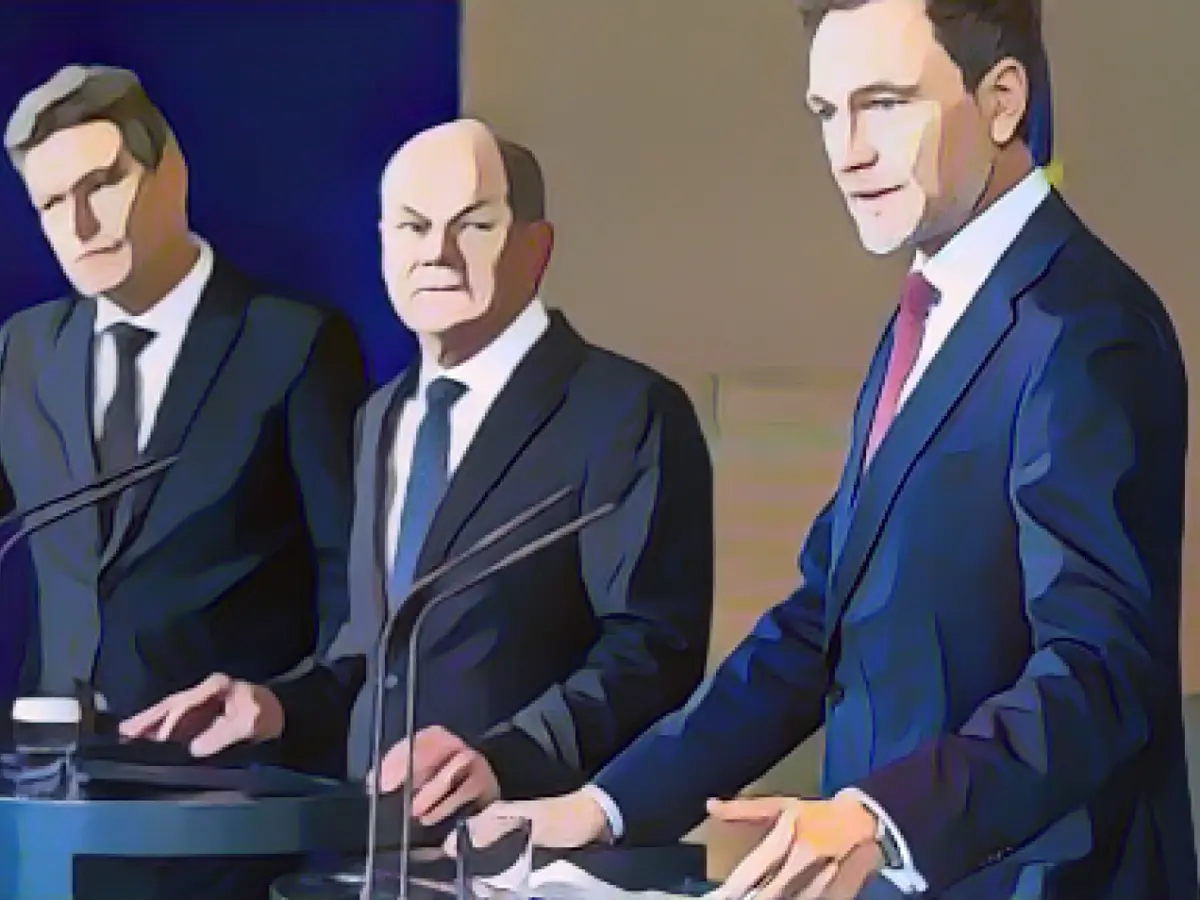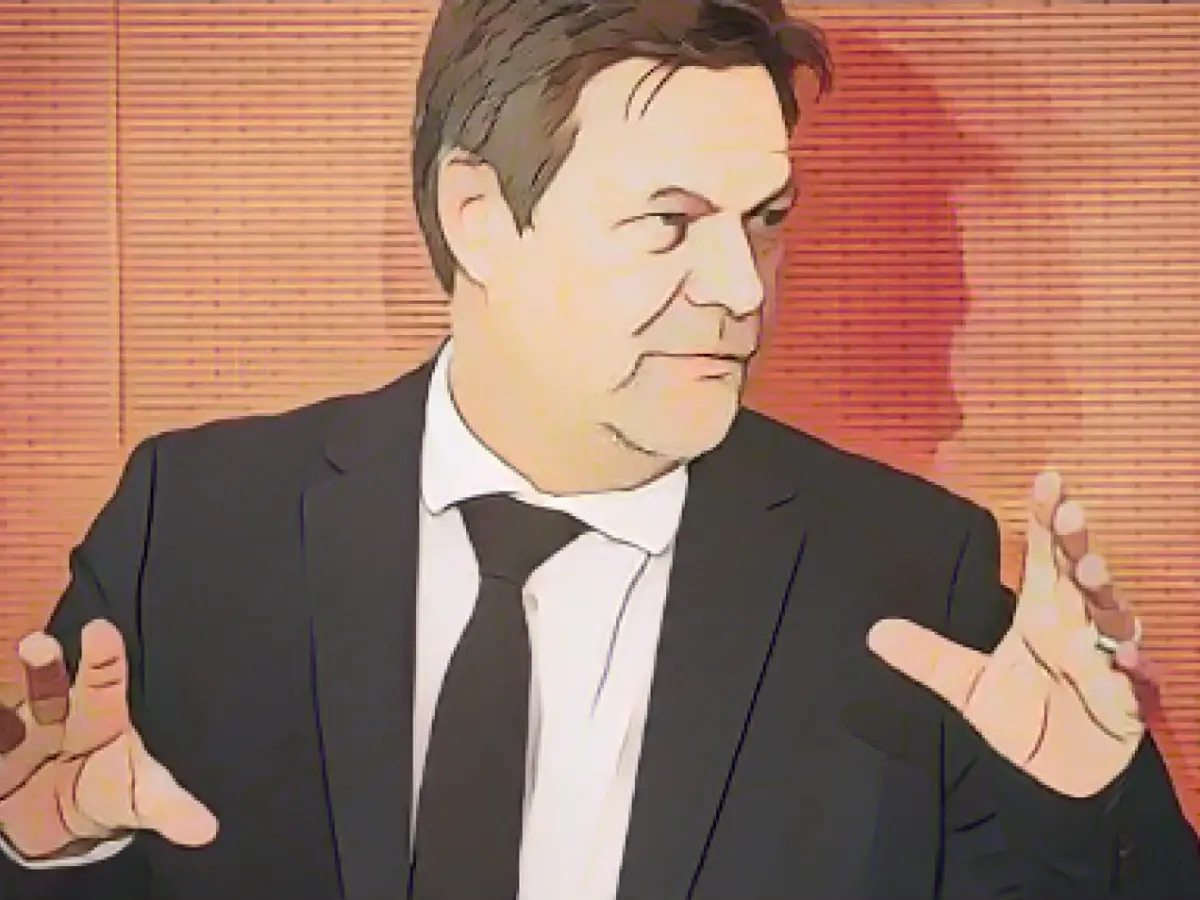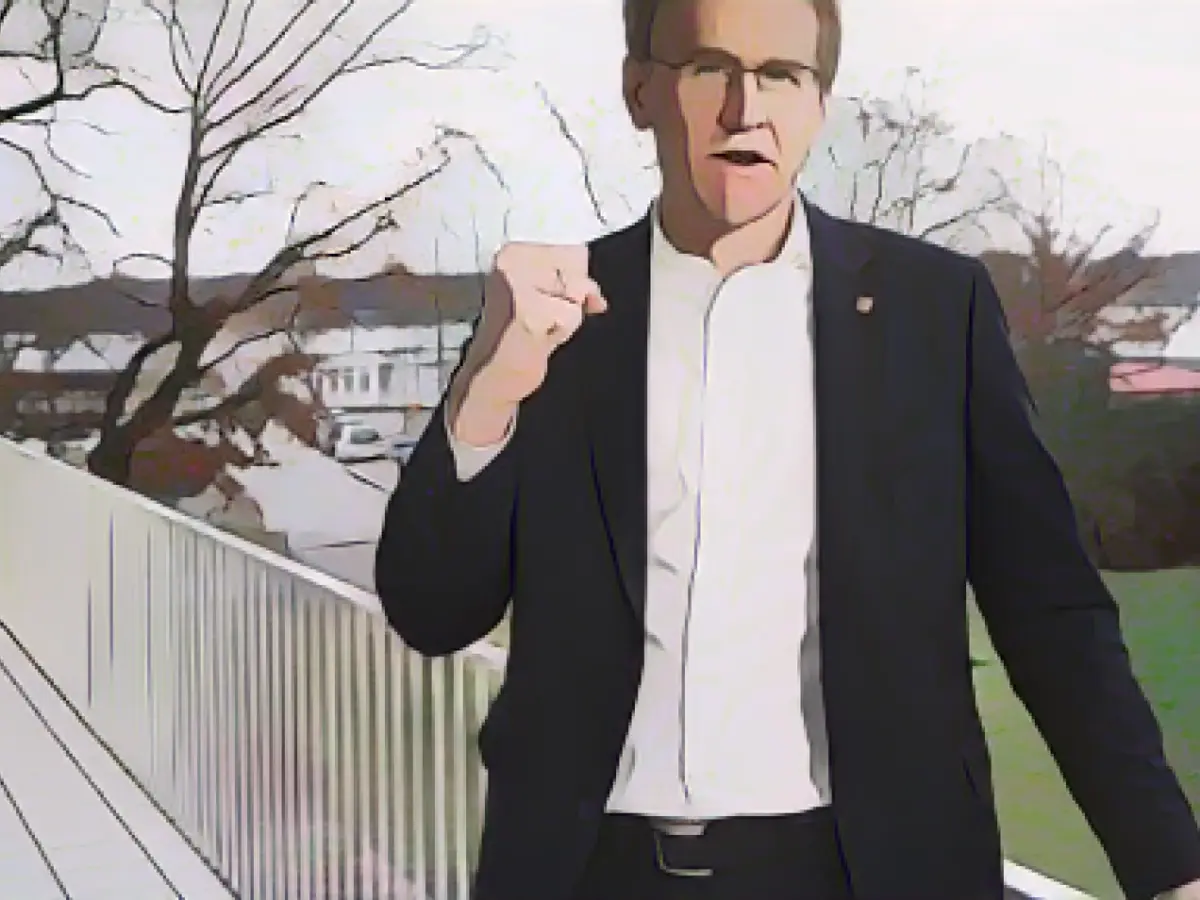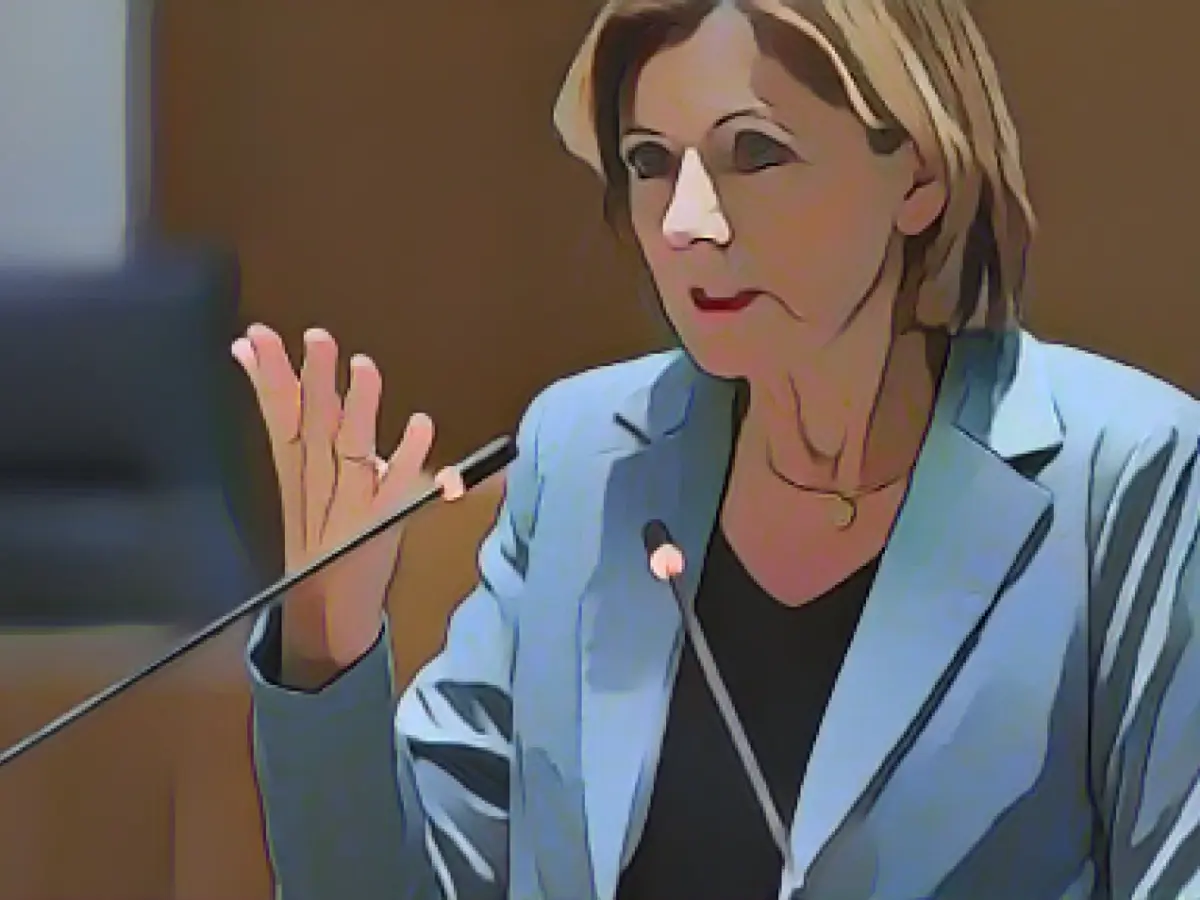Federal Budget 2024: A New Era of Cuts and Savings
After an arduous negotiation process, the leaders of Germany's traffic light coalition have reached an accord on the federal budget for 2024. Olaf Scholz, Chancellor of SPD, and his coalition partners – the Greens and the FDP – aim to adhere to their central objectives while making necessary cuts and savings in response to the Federal Constitutional Court's budget ruling.
The court's decision has forced the government to minimize its spending to remain within the budget constraints. Climate-damaging subsidies will be abolished, departmental spending will be reduced, and federal subsidies will be cut back. In addition, an exception to the debt brake–a restrictive fiscal rule that limits government borrowing–may be made to accommodate further payments for victims of the 2021 Ahr valley flood disaster.
The coalition remains dedicated to its three key goals: promoting climate neutrality, strengthening social cohesion, and backing Ukraine's defense against Russia. Nevertheless, they acknowledge that achieving these goals with the reduced financial resources will necessitate significant adjustments.
Rising CO2 Prices and Subsidy Cuts
The coalition's bargain, which required Olaf Scholz, Christian Lindner (FDP's Finance Minister), and Robert Habeck (Greens' Economics Minister) to work tirelessly, offers a solution to the budget crisis about four weeks after the Federal Constitutional Court's ruling. The leaders of the coalition government have been discussing how to fill the budget gap of 17 billion euros for the upcoming year and finance various climate change and economic modernization investments.
The Karlsruhe court ruling resulted in a shortfall of 60 billion euros in the so-called Climate and Transformation Fund, a budget allocation reserved for various initiatives related to climate protection and the modernization of the economy. The federal court in Karlsruhe declared reallocations in the 2021 budget null and void and ruled that the government may not set aside emergency loans for later years.
To address the funding gap, the coalition now intends to boost CO2 prices for refueling and heating with fossil fuels. Lindner and Habeck announced in joint statements with Olaf Scholz in the Chancellery that they would return to the old price path of the previous grand coalition. Additionally, a billion-euro subsidy for electricity grid fees will be scrapped as per information obtained from coalition circles.
The traffic light coalition aims to save approximately three billion euros through a reduction in climate-damaging subsidies. Moreover, they plan to pare down climate protection and transformation projects worth 45 billion euros between 2022 and 2027. While the Climate and Transformation Fund remains the primary tool for the government's environmental objectives, significant cuts to its expenditure will be made in 2024 alone.
Savings in Social Benefits and Finance for Ukraine Aid
The coalition leaders have ensured that Ukraine will continue to receive substantial aid from Germany. This assistance, which involves 8 billion euros for weapons, financial aid for the Ukrainian budget, and more than 6 billion euros to support Ukrainian refugees in Germany, will be sourced from the regular budget. According to Chancellor Scholz, the government will react if the situation worsens as a result of Russia's war on Ukraine, potentially requiring additional funding.
The coalition government had initially aimed to approve the 2024 budget before the end of the year; however, this objective is unlikely to be met due to legislative requirements in the Bundestag and Bundesrat. While the Bundestag Budget Committee may conclude its deliberations before Christmas, this depends on the scope of budget changes. In January, the Bundestag would convene for a budget week, and the budget figures could be ratified.
Until then, a provisional budget will be in effect. Ministries will only be allowed to spend funds necessary to maintain administrative operations and fulfill legal obligations during this transitional period. Occasionally, the Ministry of Finance may approve the use of a percentage of the draft budget funds that haven't been approved yet each month for ongoing expenses.
Further Reading
Insights:
Discussions about budget cuts and savings measures have been ongoing in the German government. While there are proposals for reducing social spending and increasing tax revenues, neither has resulted in concrete budget adjustments announced by the government. Some proposals suggest exemptions to the debt brake rule, which would require a two-thirds majority in both houses of the federal parliament. Additionally, increases in VAT and other taxes have also been suggested to reinforce finance plans, potentially impacting lower-income households.








